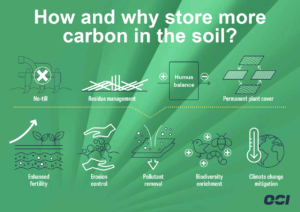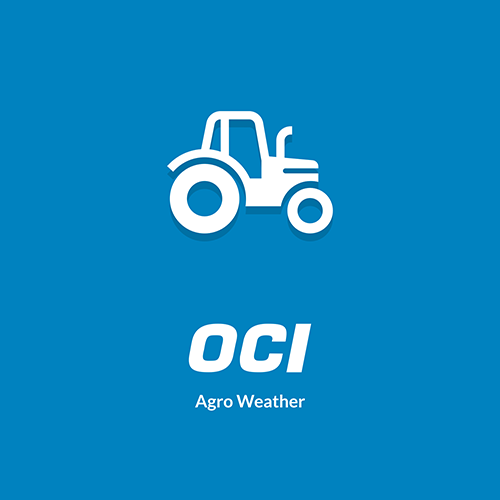Managing carbon to enrich the soil and help the climate
Carbon can be organic, produced by living organisms, or inorganic, resulting from geological flows. In soils, organic carbon is in a dynamic balance between inputs of plant residues and animal waste and losses due to their decomposition or harvesting.
 The functions of carbon are essential:
The functions of carbon are essential:
- increasing soil fertility
- reducing erosion
- eliminating water pollutants
- enriching biodiversity and mitigating climate change
In the latter case, the longer carbon remains stored in the soil, the less it increases the concentration of greenhouse gases in the atmosphere.
There are two complementary strategies for acting on both soil and climate.
- The first is to increase organic matter levels by eliminating tillage, managing crop residues more effectively and carrying out a humic balance.
- The second strategy is to cover as much of the soil as possible with plant cover to increase available photosynthesis, by intercropping, sowing under cover or practicing agroforestry.


